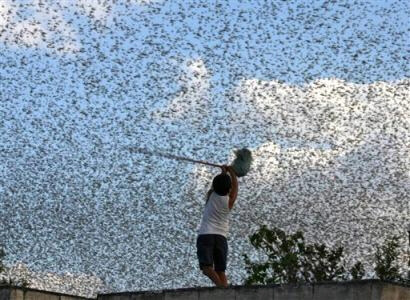We're continuing on with our top ten reasons that every Christian should care for the environment. Specifically, these are scriptural reasons, that presume that the Bible has some form of authority over our lives. We have, to date, seen that in the Bible there is a theme about the value of creation. God declares his creation to be good; he blesses his creation; and he cares and provides for his creation. These three points alone should be sufficient to cause Christians to re-examine their perspective on ‘rule’ in Genesis 1:28. If God had given creation over to us to use and abuse as we see fit, then he would not be exercising his own rule over it, nor would he institute blessings that might not be in the best interest of our rule. Today we will explore this in more detail, by looking at Old Testament passages and seeing that God put moral restrictions on our rule over creation. It becomes increasingly obvious, the more we study, that ‘rule’ cannot mean ‘as you see fit.’
Friday, March 23, 2012
Monday, March 19, 2012
#8: God Cares For His Creation

Today we continue our countdown of the top 10 reasons every Christian should care for the environment.
10. The world is good.
9. God blessed His creation.
8. God cares for His creation.
Today’s point consists of three smaller points:
a) God brags about His creation
In Job 39 God asks Job a series of questions out of a whirlwind, with the intention of reminding Job of God’s might power. Many of these questions center around both wild and domestic animals. One gets the sense that God believes his power to be evident in creation, and that he is proud of the works of his hand. Read, for instance:
Thursday, March 08, 2012
Struggle for Existence - Chapter 3 in the Origin of Species
 |
| Locust swarms involve intense competition for resources |
At this point in our tour of Darwin’s Origin, Darwin has questioned the 19th-century view of species as distinct entities created by God, and varieties as deviations from the species-type. Instead, Darwin has presented compelling evidence, in large part through domestic organisms, that varieties and species are not different in kind, but only in degree. That is, varieties, when they become especially well-marked, are identified as species. A species evolves into different varieties; those varieties, in turn, may evolve into new species.
Darwin has also argued that there is a considerable amount of individual-level variation that exists in wild populations, and it is this variation that is the fuel for what he calls ‘natural selection’, a metaphorical phrase that he took from the phrase ‘artificial selection’. Artificial selection occurs when humans look at a population and choose the individuals that have the best features for breeding. Natural selection, although there is no conscious choice occurring, is the equivalent process that occurs in the wild. Survival of the fittest.
In chapter three, Darwin sets the scene for his next chapter on natural selection. Here he argues that waste and death is the hallmark of nature and is essential for speciation, rather than direct miraculous intervention from a beneficent God. Babies die, and they die in large quantities. This is an essential truth, if we wish to understand evolution.
Sunday, March 04, 2012
Top 10 Reasons Every Christian Should Care for the Environment - # 9: God blessed His creation
We continue our countdown of the top 10 reasons every Christian should be taking care of this planet, in preparation for Earth hour at 8:30 pm on March 31.
10. The world is good
9. God blessed His creation
We Christians have made a great deal of Genesis 1:28: ‘God blessed them and said to them, “Be fruitful and increase in number; fill the earth and subdue it. Rule over the fish in the sea and the birds in the sky and over every living creature that moves on the ground.”’
Subscribe to:
Posts (Atom)